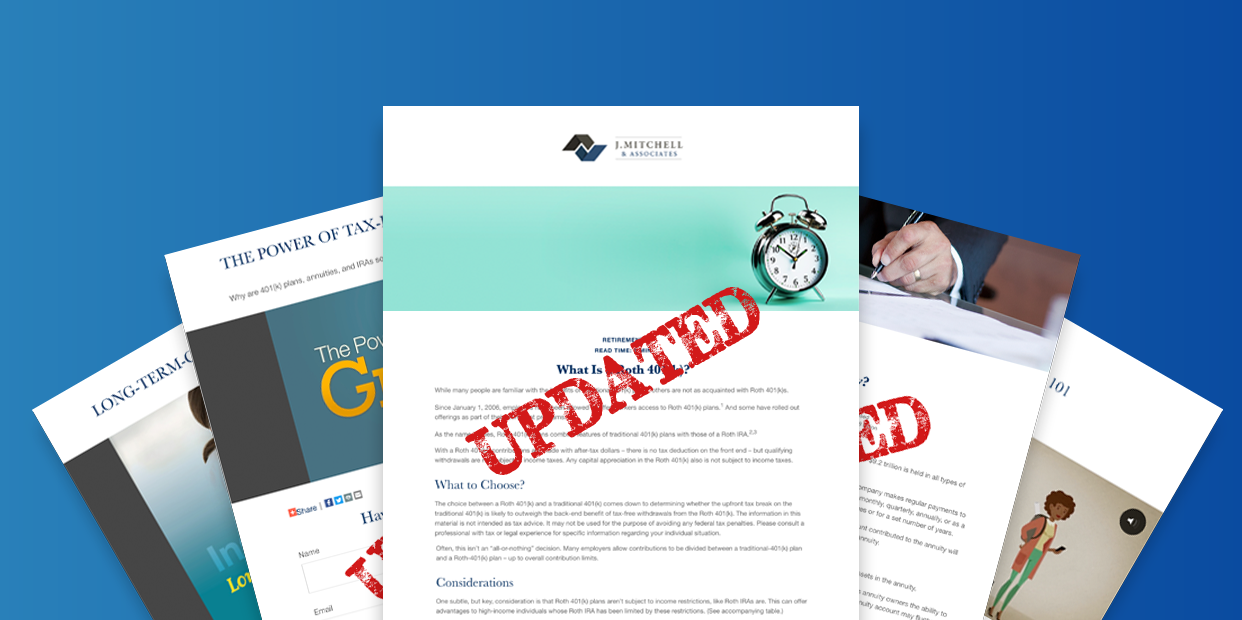How Content Updates Work

You probably know we offer a library of great content, with more fresh resources coming out every week. We’re pretty proud of that, and we talk about it all the time. But you might not realize just how much we do behind the scenes. To keep our library fresh, we are continually maintaining, reviewing, and updating our entire collection. Here’s what you need to know about our process.
What Do We Mean by “Update?”
While every content piece is a little different, here’s an outline of our typical process:
-
A full-time Content Researcher reviews the resource in question (article, video, infographic, presentation, whitepaper, or other) and identifies any outdated information.
-
Working with our on-staff Subject Matter Experts (SMEs) and copywriting team, the Researcher digs into all facts, sources, legal changes, dates, industry shifts, regulatory or compliance-related requirements, and other data presented in the content piece.
-
Our design and video teams may also provide refreshed, accurate visuals, paying close attention to ensure that the piece is inclusive, diverse, and accessible to every audience.
-
Once all fact-checking and updates are complete, the content piece is given a final proof and QA before handing it off to our publishing team.
-
If a new FINRA letter is needed, the publishing team will resubmit the piece for review and attach the new FINRA letter when it comes back.
-
Finally, our ninja-like publishing team replaces the outdated content with the new version, and the process is complete.
How Often Do We Update Content?
Our update schedule varies by content type:
-
Articles and infographics: every year
-
Videos & presentations: every two years
-
Whitepapers: every 1-2 years or as needed, depending on the piece
-
Calculators: as needed
-
System pages (such as the Tax Resources page): every year
-
Social posts, social sequences, and emails: content is updated or removed twice a year
While we may update even more frequently if needed, this schedule is our minimum. So whether you’re looking at a resource we just produced or an older library favorite, you can be confident that it’s current (or pending review).
Our goal is to provide the most accurate, relevant, and timely information available. If you see something that doesn’t look right, please email us at service@fmgsuite.com. Our Content Team will be happy to check it out.
How Do We Respond to Regulatory Changes?
Legal and regulatory changes often necessitate updates to our content. Some of these changes occur regularly throughout the year. These routine changes include:
-
The IRS Tax Announcement, which includes changes to tax brackets and contribution limits, occurs annually around October.
-
The Social Security Cost of Living Announcement occurs annually around October.
-
The Medicare Premium and Deductible Announcement occurs annually around late September.
We keep a sharp eye out for these announcements and begin making updates to affected content pieces as soon as possible. While we will update many of these content pieces or temporarily remove them within just a few days, others may take longer depending on the length of the content piece, whether the piece requires design work (such as new charts and graphs), and the degree to which the piece needs internal compliance review to come into in line with FMG's rigorous compliance standards. If there is a material change to the content, we will re-file updated web content pieces with FINRA. Web content pieces includes articles, infographics, and videos. We do not file social post, emails, or downloadables with FINRA - they require BD approval before use.
Please note that when it comes to tax-related content, some content will be updated and created to reflect the new (upcoming) tax information, while other content pieces will continue to reflect the current tax year; this provides content intended to prepare your clients for both the upcoming tax filing season as well as the upcoming year's new tax provisions.
In addition to regular updates, our experts also keep an eye on the latest legal developments. We’ll run a full update audit whenever a significant event occurs (like we did with the Tax Cuts and Jobs Act in 2017 and the SECURE Act in 2019).
In addition to our updates, we will regularly retire content that is no longer relevant.